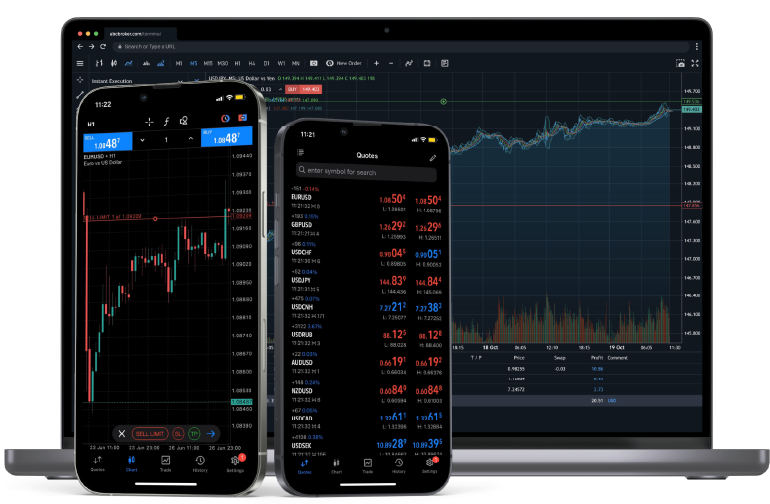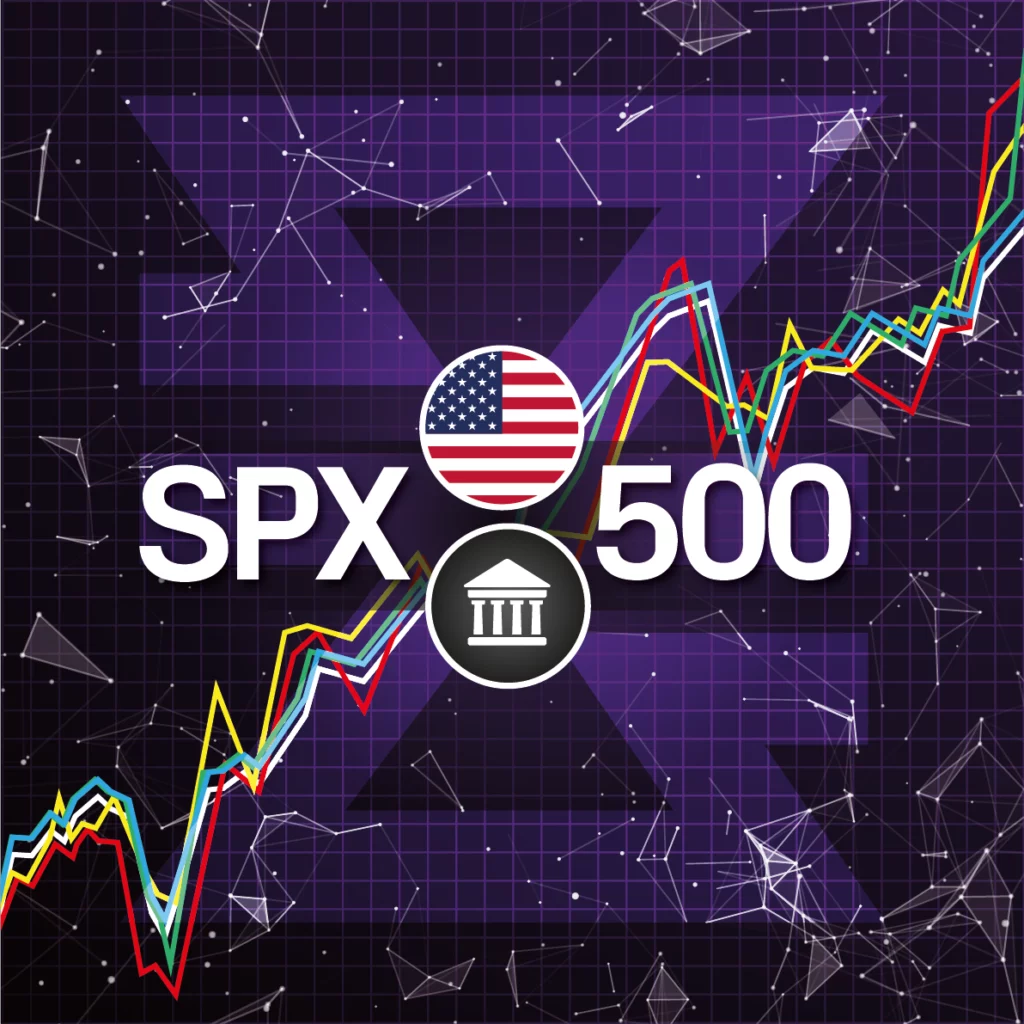- CFDs & Forex Trading | Regulated Online Trading
- About Us
- Trading
- Platforms
- Resources
- Partners
- Research
Search
×

| Symbol | SPX500 |
| Name | US S&P500 Spot Index CFD |
| Quote Currency | USD |
| Monday Open | 01:00 |
| Friday Close | 22:59 |
| Session Break | Daily: 00:00 - 01:00 |
| Spread As Low as (Quote Currency) | 0.30 |
| Commission | No |
| Contract Size (Per Lot) | 1 |
| Minimum Contract Size (Lot) | 0.01 |
| Minimum Step Size (Lot) | 0.01 |
| Limit and Stop Level | 0 |
| Leverage Up To | 1:500 |
| Execution | Market |
| Trading Platform | MT5, Mobile App, WebTrader |
| Exchange | NYSE |
| Sector | Index |
ZERO Deposit Fees
Choose from multiple (15+) deposit options such as Skrill, Neteller, Visa/Mastercard, Crypto, Local Bank and others with zero fees.
Global Market Access
Trade CFD's (1000+) on a wide range of instruments including Forex, Shares, Commodities, Indices, Precious Metals, Cryptocurrency and Energy.
6 Ways to Trade
Trade when you want and anywhere at your convenience with Windows OS, MacOS, iOS, Android, WebTrader and even Linux.
Sub 30ms Latency Trading
Trades are executed through liquidity engines in LD4 and access servers in Asia, Europe and Africa.
Supports Proprietary Trading
Get access up to $2 million in funded trading for qualified profitable traders on MT5.
24/5 Unparalleled Service
Knowledgable and prompt service available on Live Chat, Email, Phone, Whatsapp and Telegram.
Choose from multiple trading options based on your preference of order types, indicators, charting tools, style of trading and operating environment.

The S&P 500 (SPX500) is a broad-based United States stock market index that serves as a barometer for the performance of large-cap stocks. In Spot CFD trading, traders can speculate on the collective price movements of these top-tier companies without owning the actual stocks.
Corporate Earnings:
The financial performance and earnings reports of the 500 companies within the index play a significant role in influencing its movement.
Economic Indicators:
Economic data such as GDP growth, employment figures, consumer spending, and inflation rates can impact investor sentiment and drive the SPX500’s trends.
Federal Reserve Policies:
Monetary policy decisions by the US Federal Reserve, particularly regarding interest rates and quantitative easing, can significantly affect the stock market and the index.
Global Events:
International political and economic events can cause market volatility, thereby impacting the SPX500.
Sector Performance:
The SPX500 covers various sectors, and the performance of these sectors can cumulatively influence the index. Tech, healthcare, financials, and consumer goods are among the key sectors to watch.

The S&P 500 (SPX500) CFD offers traders a gateway to one of the most significant US stock market indices. To navigate the S&P 500 market successfully it is vital to understand factors that influence it, from corporate earnings to macroeconomic indicators.
Market News and Analysis
It is essential to follow financial news and market trends regularly to understand movements in SPX500.
Economic Calendar Monitoring
Keep track of key economic data releases and Federal Reserve meetings to gain insights into potential market reactions.
Sector Analysis
Look into which sectors are performing well or underperforming as this offers predictive cues for the index’s movement.
Technical Analysis
Utilize technical analysis, including chart patterns and indicators that assist in forecasting the index's trajectory.
Risk Management
Due to the potential volatility of the index, it is important to implement risk management strategies.
Start trading SPX500 now!
The SPX500 is influenced by the performance of the 500 large companies listed on U.S. stock exchanges. Factors impacting these companies include corporate earnings, U.S. economic data, Federal Reserve policies, global geopolitical events, and broader market sentiment.
Economic indicators like GDP growth, unemployment rates, inflation, consumer spending, and manufacturing data can significantly impact the SPX500. Positive economic conditions typically boost investor confidence and can lead to index growth, while negative conditions can result in market declines.
The best times to trade SPX500 CFDs are during the primary trading hours of the U.S. stock market, especially around the release of key economic reports, corporate earnings announcements, and major policy decisions by the Federal Reserve.
Traders often use strategies like technical analysis, fundamental analysis, trend following, and swing trading for SPX500 CFDs. Some also focus on trading based on economic news and market sentiment.
Interest rate decisions by the Federal Reserve can have a significant impact on the SPX500. Higher interest rates can increase borrowing costs for companies, potentially lowering profits and stock prices, while lower rates often stimulate economic growth and can boost the index.
Corporate earnings reports from the S&P 500 constituent companies can significantly impact the index’s performance. Strong earnings can drive market gains, while weak earnings can lead to declines.
Yes, geopolitical events that impact investor confidence, the U.S. economy, or specific sectors can influence the SPX500. These events can create market volatility.
New traders should understand the factors that influence the U.S. stock market, stay informed about economic and corporate news, and develop a robust risk management strategy. Understanding how CFDs work, including leverage and its risks, is crucial.
Beginner or Advanced? View our full suite of tools and resources to help traders of all levels.
Get started quickly with our free forex trading course for beginners to level up on your trading knowledge.
Evaluate your risk, monitor profit or loss for each trade & estimate trading costs with our full suite of calculators.
Follow high impact news and events for the financial markets including the latest economic data.
Stay up to date with the latest fundamental and technical analysis from the Baxia Markets Analyst team.
Find answers to common questions and topics related to trading with Baxia Markets and the trading platforms.
View our collection of free educational resources to help you become a profitable trader and learn risk management.
More than 1000 CFD instruments to trade on multiple asset classes with one broker.
Forex
Precious Metals
Crypto CFDs
Energy
Indices
Commodities
Shares
BAXIA GLOBAL LIMITED
Join the community
Risk Warning: Margin trading involves a high level of risk, and may not be suitable for all investors. You should carefully consider your objectives, financial situation, needs and level of experience before entering into any margined transactions with Baxia Markets, and seek independent advice if necessary. Forex and CFDs are highly leveraged products which mean both gains and losses are magnified. You should only trade in these products if you fully understand the risks involved and can afford losses without adversely affecting your lifestyle (including the risk of losing the entirety of your initial investment). You must assess and consider them carefully before making any decision about using our products or services.
Baxia Global Limited is a company registered in Seychelles with registration number: 8426970-1, and is regulated by the Financial Services Authority of Seychelles with License number: SD104.
Baxia Limited is a company registered in The Bahamas with registration number: 177330 B, and is licensed and regulated by The Securities Commission of The Bahamas (SCB), (SIA-F234).
The information on this website is general in nature and doesn’t take into account your personal objectives, financial circumstances, or needs. It is not targeted at the general public of any specific country and is not intended for distribution to residents in any jurisdiction where that distribution would be unlawful or contravene regulatory requirements. Baxia Markets does not offer its services to residents of certain jurisdictions such as USA, Cuba, Sudan/Republic of Sudan, Syria, Iran, Iraq, South Sudan, Venezuela, Libya, Belarus, Afghanistan, Myanmar, Russia, Crimea, Donetsk, Luhansk, Palestine, Yemen, Zimbabwe and North Korea.